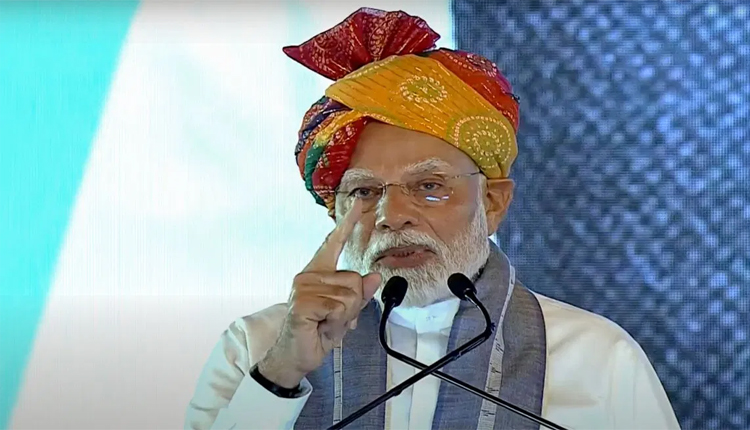New Delhi: Since the BJP has not yet chosen its national president, Prime Minister Modi himself stepped in to expedite the long waits. At his official residence on Wednesday, PM Modi held a top-level meeting attended by senior leaders, including Union Home Minister Amit Shah, Defence Minister Rajnath Singh, and National General Secretary (Organisation) BL Santosh. Leaders marshalled the marathon discussion to clear organisational hurdles in almost a dozen states, including Uttarakhand, Gujarat, and Karnataka, for the national president’s poll.
Removing Blockages at State Level
The party’s internal election process for the national president has been stalled due to incomplete organisational elections in the states of Uttar Pradesh, Karnataka, Odisha, West Bengal, Uttarakhand, Gujarat, Madhya Pradesh, Telangana, Maharashtra, Haryana, and Himachal Pradesh. With their state’s councils adding to a significant portion of the electoral college needed for the national president’s election, these states are crucial, party sources asserted. At the time of the elections, at least 50% of the members of state councils, along with the national council members, are eligible to form this electoral college as stipulated in the BJP’s constitution, so state-level elections are a precondition.
The discussion focused on how to speed up these state elections. Agreements were also reached for new state presidents for around half a dozen states, which may be announced in two to three days, sources said. States including Karnataka, Telangana, Andhra Pradesh, Uttarakhand, and Gujarat are expected to get new leadership soon, which will open the way for the election of the national president, possibly from April 20.
Why the Delay?
The original deadline for the BJP’s national president poll was January 2025, following the completion of JP Nadda’s extended term. The 2024 Lok Sabha elections extended Nadda’s appointment from January 2020 to January 2023. On March 13, 2025, Nadda was given a 40-day extension by the BJP’s parliamentary board, which is due to end on April 23. As the deadline looms, PM Modi’s involvement highlights the need to work out the leadership change before that deadline.
The delay has been credited with armed difficulties in pivotal states. Given the significance of Uttar Pradesh in the upcoming 2027 Assembly election, the party has had to navigate caste considerations when selecting a state president. Caste and regional factors have similarly delayed decisions in Gujarat and Karnataka, where the party is carefully negotiating local dynamics. The Madhya Pradesh scene, on the other hand, is relatively less complicated.
New Leadership: Strategic Vision
The BJP wants a national president who can lead the party through important Assembly elections for Bihar, Kerala, Tamil Nadu, Assam and West Bengal in 2025 and 2026. The new Indian leader will face immediate challenges, especially in Bihar, where the BJP is in the ruling coalition but rarely governs alone, and in southern states like Kerala and Tamil Nadu, where the party has struggled to form a government. Despite the party’s gains, West Bengal is still a challenging battleground.
Party sources stress that the litmus test for the best man is someone who must be in sync with the Rashtriya Swayamsevak Sangh (RSS), be favoured by PM Modi and Amit Shah, and have an organisational mind to steer the BJP’s massive machine. Party top brass are also keen on countering the opposition’s narrative built by the INDIA bloc and bolstering the party’s election strategy for next year’s Lok Sabha election.
On the Agenda: Organisational Reforms
The meeting also deliberated on restructuring the BJP’s central team. They discussed giving at least 50% of the general and secretary positions to younger leaders to infuse new energy in the organisation. The push to elevate women’s representation into significant roles is indicative of the party’s commitment to inclusiveness. The parliamentary board, however, is expected to feature many senior heavyweights, as it would like to provide continuity and experience.
Next Steps
With an April 23 deadline approaching, the BJP is sprinting to finalise the state-level appointments and kick off the national president’s election process. Announcing state presidents in the next few days will create the framework for a smooth transition at the national level. The appointment of a new president would determine not just BJP’s electoral strategy for the forthcoming Lok Sabha elections but also its ideological and political course for the longer term leading up to the 2029 general election.
With the party sailing through these internal changes, PM Modi’s leadership in this transition will be closely watched, as the BJP works to reaffirm itself as the preeminent political apparatus of India.



Comments are closed.